The Electronics and Communication Engineering (ECE) department was established in the year 2000 and it is a specialized department that focuses on the study and application of electronics, communication systems, and related technologies. The Electronics and Communication Engineering is one of the most popular and diverse branches of engineering, playing a crucial role in various industries such as telecommunications, information technology, consumer electronics, automobiles, industrial automation and many more.
The department offers a well-structured curriculum that covers both theoretical and practical aspects of ECE. It includes core subjects such as electronic circuits, signals and systems, electromagnetic theory, digital electronics, communication systems, and specialized topics like VLSI design, wireless communication, embedded systems, digital image processing and optical communication.The department aims to produce competent engineers who can contribute to the development, design, and maintenance of electronic systems, communication networks, and cutting-edge technologies. The department is also equipped with state-of-the-art laboratories that provide students with hands-on experience in designing, prototyping, and testing electronic circuits and communication systems. The Electronics and Communication Engineering department actively encourages research and innovation. Faculty members and students engage in research projects, publish papers in conferences and journals, and contribute to advancements in areas such as wireless communication, signal processing, image processing, machine learning, deep learning, and other latest emerging technologies.
The department often collaborates with industry partners to bridge the gap between academia and industry. This collaboration may involve industry visits, internships, guest lectures by industry experts, and joint research projects. It helps students gain exposure to real-world challenges, industry practices, and emerging technologies.
The department promotes the participation of students in technical events, workshops, seminars, and competitions related to electronics and communication engineering. These activities help enhance technical skills, foster teamwork, and provide opportunities for networking with professionals from the industry. Electronics and Communication Engineering graduates have a wide range of career opportunities in various sectors. They can work in industries such as telecommunications, electronics, information technology, consumer electronics, aerospace, defense, research and development, and academia. The department prepares students for these careers by providing them with a strong foundation in technical knowledge, problem-solving abilities, and communication skills.
Students can apply for numerous corporate positions as well as employment with public sector units (PSUs). Some of the top businesses where one might be hired include:
- Bharat Electronics Limited (BEL)
- Bharat Heavy Electricals Limited (BHEL)
- Oil and Natural Gas Corporation Limited (ONGC)
- Bharat Sanchar Nigam Limited (BSNL)
- Texas Instruments
- Intel
- IBM
- Samsung Electronics
- Wipro
- HCL
The department of ECE is also equipped with some state-of-the-art lab facilities apart from University curriculum for students’ development.
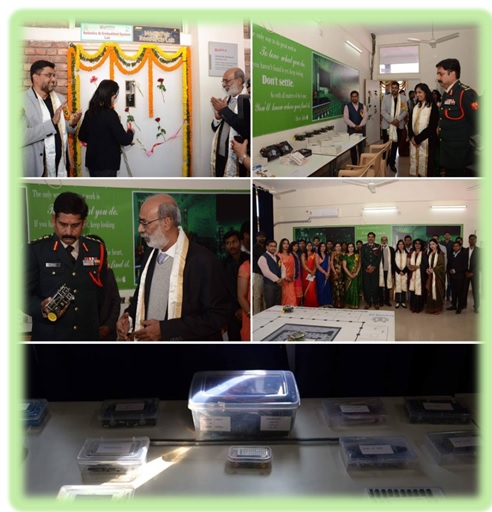
MediaTek RESEARCH LAB
The MediaTek Lab was inaugurated in February 2018 and is sponsored byMediaTek. MediaTek Incorporated (TWSE: 2454) is the world’s 4th largest global fabless semiconductor company. They are the market leaders in developing innovative systems-on-chip (SoC) for mobile device, home entertainment, connectivity and IoT products. This lab is not the part of University Curriculum and it has been incorporated so that the students can act on their ideas before they expire. The main objective of the lab is to promote research, generating ideas and innovation among the students. The lab can help them get hands on experience of the latest technologies andaims to bridge the Industry Academia gap
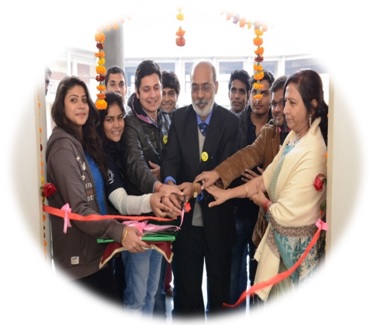
e-YANTRA LAB SETUP INITIATIVE (eLSI)
This is an initiative taken by IIT-Bombay towards promotion of automation and robotic research in the field of agriculture.
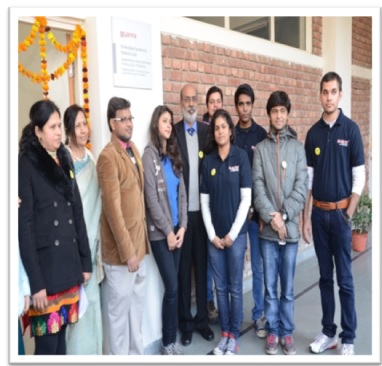
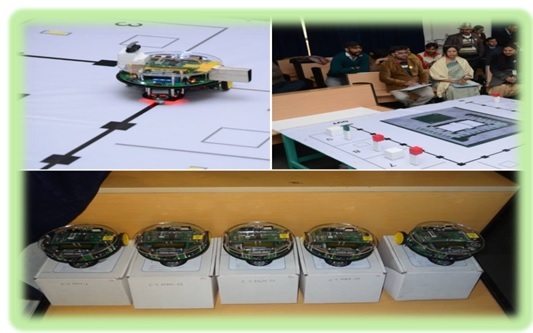
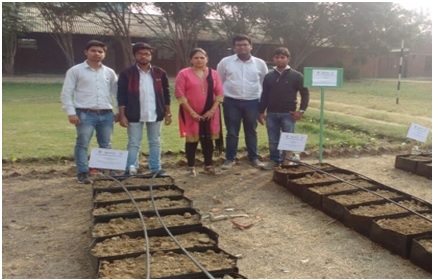

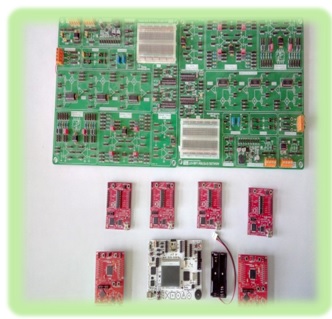
Texas Instruments Lab
This lab was developed in collaboration with Texas and has equipment’s like MSP 430 & ASLKPRO KIT.
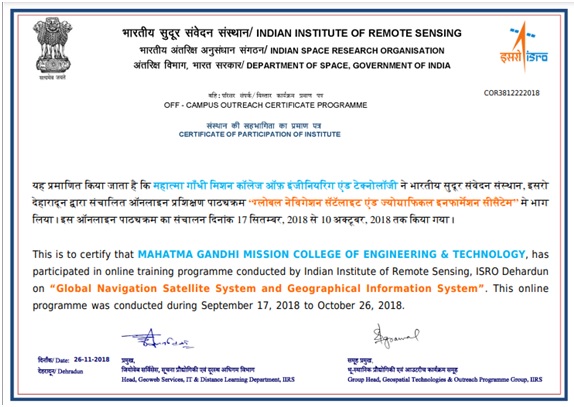
NETWORK INSTITUTE OF INDIAN INSTITUTE OF REMOTE SENSING (IIRS) Indian Space Research Organization, Government of India OUTREACH PROGRAM SINCE 2018
IIRS Outreach Programme focusses on strengthening the Academia and User Segments in Space Technology & Its Applications using Online Learning Platforms. Mahatma Gandhi Mission’s College of Engineering & Technology also participated in IIRS Academia Meet 2019 in Dehradun organized by ISRO.
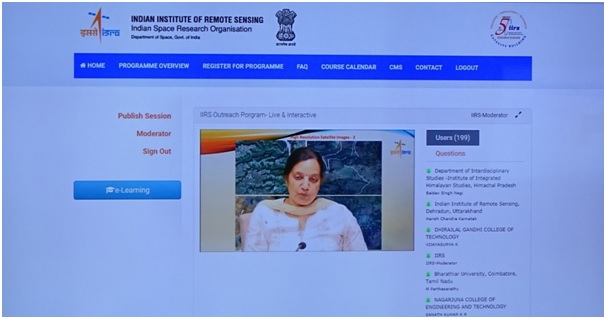
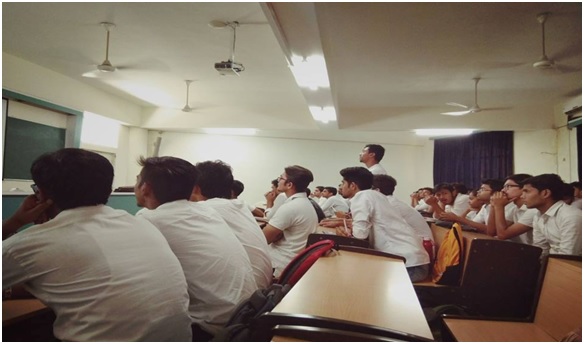
The department of ECE conducted various IIRS Outreach programme on Geographical information system,Global Navigation Satellite System, Geo Processing and visualization on web platforms.
IIRS Academia Meet 2019 in Dehradun organized by ISRO.
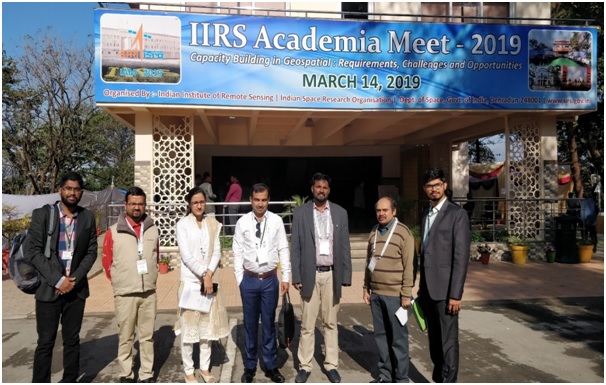
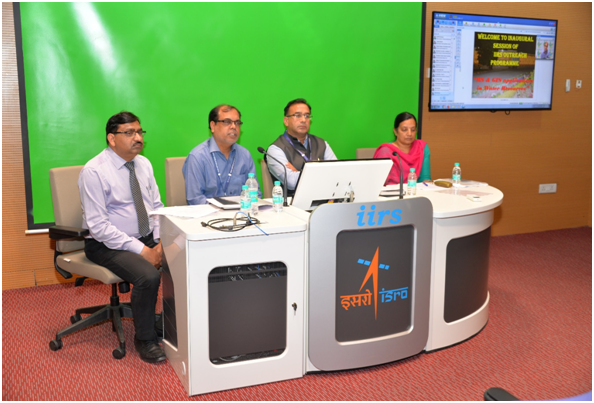
MISSION
The mission of the Department of Electronics and Communication Engineering is to provide a comprehensive education in electronics and communication, stimulating a deep understanding of the subject matter, promoting innovative thinking, and nurturing ethical and socially responsible engineers. Our aim is to empower our students with the skills, knowledge, and competencies required to excel in the rapidly evolving field of technology, contribute to the advancements in society, and become global leaders in the industry.
VISION
Our vision is to be a leading department in Electronics and Communication Engineering, recognized for our academic excellence, research contributions, and industry collaborations. We strive to create a vibrant and inclusive learning environment that inspires creativity, critical thinking, and lifelong learning. Our graduates will be known for their technical expertise, leadership abilities, and ethical conduct. We envision our department as a catalyst for innovation, where groundbreaking research and cutting-edge technologies drive positive transformations in society. We aspire to be a center of excellence, producing engineers who contribute to the betterment of the world through their knowledge, skills, and ethical practices in the field of Electronics and Communication Engineering.
Program Objectives:
The department of Electronics and Communication Engineering strives to turn forth graduates who are well-suited for lucrative positions in industry, academia, and other fields of professional endeavour. Through the use of principles and technologies from electronics and communication engineering, these goals also develop the discipline and improve society.
- Technical Knowledge and Competence: To provide students with a strong foundation in the principles, theories, and practices of electronics and communication engineering. This includes a deep understanding of electronic circuits, digital systems, communication systems, signal processing, and related areas.
- Problem-Solving Skills: To develop students' ability to analyze complex engineering problems, apply critical thinking, and employ systematic approaches to solve them. This includes the capacity to identify and define problems, gather and analyze data, propose solutions, and evaluate their effectiveness.
- Design and Implementation Skills: To equip students with the skills necessary to design, implement, and evaluate electronic systems and communication networks. This involves proficiency in using modern design tools, software, and hardware to develop practical solutions that meet specified requirements.
- Teamwork and Communication: To cultivate students' ability to work effectively in multidisciplinary teams and communicate their ideas clearly and professionally. This includes collaborating with peers, effectively participating in group projects, and delivering technical presentations and reports.
- Professionalism and Ethics: To instill in students a sense of professionalism, ethical conduct, and social responsibility in their engineering practice. This includes understanding the impact of engineering solutions on society, adhering to professional codes of conduct, and considering the ethical implications of their work.
- Lifelong Learning and Adaptability: To foster students' motivation for continuous learning, self-improvement, and the ability to adapt to emerging technologies and changing industry demands. This includes promoting a mindset of curiosity, innovation, and a willingness to embrace new challenges and learning opportunities.
- Leadership and Entrepreneurship: To develop leadership qualities and an entrepreneurial mindset among students. This includes nurturing skills in project management, team leadership, innovation, and the ability to identify and seize opportunities in the field of electronics and communication engineering.
- Professional Development: To provide students with opportunities for professional development, including exposure to industry practices, internships, industry collaborations, and involvement in professional organizations and societies related to electronics and communication engineering.
Program Outcomes :
Program outcomes are the specific knowledge, skills, and attributes that students are expected to acquire and demonstrate upon completion of the Electronics and Communication Engineering (ECE) program. These outcomes are designed to ensure that graduates are well-prepared for their professional careers and can meet the demands of the industry.
Engineering Knowledge: Graduates should demonstrate a comprehensive understanding of mathematics, science, and engineering principles relevant to electronics and communication engineering. They should have a strong foundation in areas such as circuit analysis, signal processing, communication theory, electromagnetic fields, and digital systems.
Problem Solving: Graduates should possess the ability to identify, analyze, and solve complex engineering problems in the field of electronics and communication. They should be proficient in applying engineering methodologies, tools, and techniques to design and evaluate electronic systems, communication networks, and related applications.
Design and Implementation: Graduates should be able to design, implement, and test electronic circuits, communication systems, and embedded systems. They should be skilled in using modern engineering software and hardware tools, as well as applying engineering standards and best practices in their design processes.
Experiments and Measurements: Graduates should be competent in conducting experiments, collecting data, and interpreting results using appropriate techniques and instruments. They should possess knowledge of experimental design, measurement principles, and data analysis methods relevant to electronics and communication engineering.
Teamwork and Communication: Graduates should have effective communication and teamwork skills. They should be able to collaborate with others in multidisciplinary teams, communicate ideas and technical information clearly, and work together towards common goals.
Professionalism and Ethics: Graduates should understand and adhere to professional and ethical responsibilities in their engineering practice. They should demonstrate awareness of societal, environmental, and ethical implications of engineering solutions, and integrate these considerations into their decision-making processes.
Lifelong Learning: Graduates should have the ability and motivation for self-directed learning, professional development, and keeping pace with advancements in the field of electronics and communication engineering. They should be aware of emerging technologies and trends and be capable of adapting to evolving industry needs.
Leadership and Entrepreneurship: Graduates should exhibit leadership qualities, entrepreneurial mindset, and the ability to take initiative. They should have skills in project management, team leadership, innovation, and the ability to identify and seize opportunities in the field of electronics and communication engineering.
Professional Development: Graduates should have developed an understanding of professional and ethical responsibilities and engaged in activities that contribute to their professional development. This may include participation in professional societies, continuing education, and involvement in industry collaborations, internships, or research projects.
